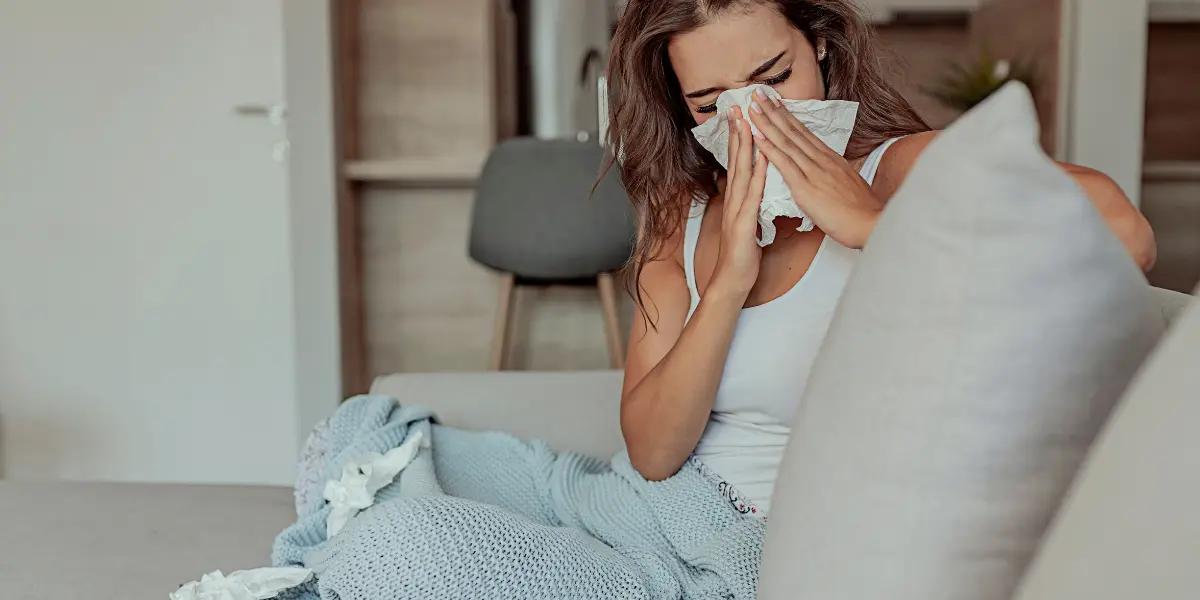Which Air Filter Is Right for You?
As the weather cools down here in Springfield, MO, fall allergies can still make life uncomfortable. Even though we’re done with the spring blooms, allergens like ragweed, mold spores, and dust mites can stir up allergy symptoms just as easily. Thankfully, your HVAC system, paired with the right air filter, can be your best ally in keeping these allergens out of your home. At SS&B Heating & Cooling, we’re here to help you find the best air filter to keep you breathing easy all fall.
How Air Filters Help Fight Fall Allergies
When it comes to managing seasonal allergies, not all air filters are created equal. Your choice of filter can significantly impact your indoor air quality, so it’s important to know what each type offers. Here’s a breakdown of the most common filters and how they can help minimize allergens in your home this fall.
Types of HVAC Air Filters to Combat Fall Allergies
1. Traditional Fiberglass Filters
Fiberglass filters are widely used because they’re affordable and disposable. They’re great for protecting your HVAC system from large debris but aren’t very effective at capturing smaller allergens. These filters trap less than 10% of airborne particles, so if you or a family member struggles with allergies, you’ll want to look at other options.
2. Pleated Fiberglass Filters
Pleated filters are a step up from basic fiberglass filters. They’re made with more surface area and can capture 20-50% of allergens, depending on the filter rating. Pleated filters are available in electrostatic versions, which use a charge to attract particles. While they can restrict airflow slightly more than traditional filters, they offer much better protection against allergens like dust and pollen. They’re a solid choice for many homes in Springfield.
3. HEPA Filters
HEPA filters are the gold standard for allergy sufferers. They remove up to 98% of airborne pollutants, including pollen, mold spores, and dust mites. However, due to their density, they require a special setup in your HVAC system, often involving a separate fan to push air through. While they’re more expensive, the high level of filtration is worth it for homes dealing with severe allergies.
4. Electronic Air Filters
Electronic air filters, like the Trane CleanEffects® Whole Home Air Cleaner, use an electrostatic charge to capture up to 99.98% of airborne particles, including bacteria and viruses. This advanced technology makes them a top option for those looking to significantly reduce allergens without sacrificing airflow. They’re also reusable, so you can wash them and reuse them for years, making them an eco-friendly choice.
Choosing the Right Size Air Filter
Selecting the correct size filter is just as important as choosing the type. If your filter doesn’t fit properly, it won’t effectively trap allergens or protect your HVAC system. Most filters come in standard sizes, and it’s essential to match the filter size to your system’s requirements. You can find the correct size by checking your current filter or consulting your HVAC system’s manual.
Common sizes include:
- 14 inches by 25 inches
- 16 inches by 20 inches
- 16 inches by 25 inches
- 20 inches by 25 inches
- 25 inches by 25 inches
Remember, the best filter size is the one that fits your system perfectly to maintain airflow and reduce allergens.
Tips for Reducing Fall Allergies in Your Home
In addition to upgrading your air filter, you can take a few extra steps to minimize allergens this season:
- Keep windows closed to prevent pollen and outdoor allergens from coming inside.
- Regularly vacuum and dust to remove allergens that settle on surfaces.
- Wash bedding, curtains, and clothing frequently in hot water to eliminate dust mites.
- Shower before bed to remove allergens from your hair and skin.
- Clean or replace your air filter once a month for optimal performance.
- Consider a whole-house air filtration system for maximum protection.
Contact SS&B Heating & Cooling for Personalized Allergy Solutions
At SS&B Heating & Cooling in Springfield, MO, we know that every home and HVAC system is different, and so are your allergy concerns. That’s why it’s important to consult with an expert before choosing an air filter. Our Trane Comfort Specialists™ can help you determine the best filter or even guide you through installing a whole-house filtration system to keep your home’s air clean and healthy.
Reach out to us today for professional advice, and let’s keep those fall allergies at bay
Call to schedule your consultation! 417-866-0990, Fill out our contact form to get started today!
As you can see from the comparison above, the Trane CleanEffects® offers an impressive Clean Air Delivery Rate (CADR) of 1,200, far surpassing traditional filters. This high efficiency makes it an excellent option for homeowners looking to enhance their air quality.
Frequently Asked Questions
How often should I have my furnace and air conditioner cleaned?

